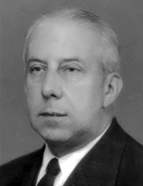

This journey was marked by the restoration of the pure monarchy, the only legitimate one, in the person of D. Miguel, which ended with the Convention of Évora Monte. This was the end of the 1 st Bragança dynasty and the beginning of the 2 nd , with the reign of D. Pedro, the constitutional king, which would be marked by well-known instability and deserved the historian ’ s sharpest criticism. It should be noted that he distinguishe d between the 1 st and 2 nd dynasties based on purely ideological criteria. And it was undoubtedly these that led him to present the Estado Novo with favour due to its anti-liberal and anti-democratic principles, as well as its organic conception of society, valuing the family as a factor and expression of continuity, and in which a strong, if not sole, power guaranteed the peace and prosperity of the social whole. Whilst he accepted that the principles enunciated by the constitutional monarchy had reached their apogee in the republic, he also admitted that in their moderate form , they had not yet made the monarchy viable in his day and age, either in its pure form or in its constitutional parliamentary form. And História breve de Portugal [Brief History of Portugal] , by bringing this ‘committed’ perspective to the attention of its readers, conveyed to them a conception of History far removed from the criteria of objectivity and documentary substantiation once enunciated by its author. In any case, he was recognised as a historian of merit. Elected a member (chair 28) of the recently re-established Academia Portuguesa da História and awarded the Alexandre Herculano prize, he was pleased to see his commitment as a historian honoured.
Bibliografia activa : Uma Campanha Tradicionalista, Lisboa, Domingos e Franco, Editores, 1919; A Lição da Democracia. Oitenta e Oito Anos da República em Portugal, Lisboa, Tipografia da Empresa do Diário de Notícias, 1922 ; “O «Tradicionalismo» da Carta”, Acção Realista, n.os, 27-28, 15.12.1925; 29, 15.1.1926; 30, Fevereiro de 1926, pp. 260-266, 7-13, 40-46, respectivamente; O Problema da Sucessão de D. João VI na “História de Portugal” do Sr. Fortunato de Almeida, Lisboa, Tipografia de José Fernandes Júnior, 1931; D. Maria I, 1777- 1792. Subsídios para a Revisão da História do seu Reinado, 2ª edição, Lisboa, Empresa Nacional de Publicidade, 1934; Cartas da Rainha D Mariana Victória para sua Família de Espanha, apresentadas e anotadas por Caetano Beirão I. 1721-1742, Lisboa, Empresa Nacional de Publicidade, 1936; “Prefácio”, Grandes Reportagens de Outros Tempos, com o pseudónimo Amador Patrício, Lisboa, Empresa Nacional de Publicidade, 1938;; História Breve de Portugal, Lisboa, Editorial Verbo, 1941; Resposta à Letra ao Jornal «Novidades», Porto, Publicações «Pola Grey», 1942; “Discursos Parlamentares”, Diário das Sessões, 1949-1953, legislaturas V e VI.
This work is financed by national funds through FCT - Foundation for Science and Technology, I.P, in the scope of the projects UIDB/04311/2020 and UIDP/04311/2020.
